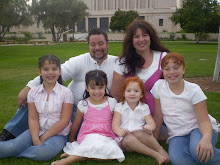Grief and Loss
Blessed are they that mourn: for they shall be comforted" (Matthew 5:4).
Loss and grief are inevitable aspects of the human experience. It does not matter if the loss is the death of a loved one, a failed relationship, or other situational factors; grief and mourning are the result. One's response to these consequences will determine whether growth is realized or suffering and trauma continue. Significant others, including family, friends, and understanding Church leaders, can facilitate a healthy resolution, emotional healing, and spiritual insights.
Grief occurs in response to the loss of someone or something. The loss may involve:
• End of a relationship•
A move to a new community
• The death of a friend, family, important person or pet
• Life-threatening illness of a loved one.
• Sudden closing of a much anticipated opportunity or life goal
Grieving such losses is important because it allows us to 'free-up' energy bound to the lost person or experience, so that we might re-invest that energy elsewhere. Until we grieve effectively, we are likely to find reinvesting difficult; a part of us remains tied to the past.
Grief, itself, is a normal and natural response to loss.
There are a variety of ways that individuals respond to loss. Some are healthy, coping mechanisms, and some may hinder the grieving process. Grieving is not forgetting, nor is it drowning in tears. Healthy grieving results in an ability to remember the importance of our loss -- but with a new-found sense of peace, rather than searing pain. It is important to realize that acknowledging the grief promotes the healing process. Time and support facilitate the grieving process, allowing an opportunity to appropriately mourn the loss.
Common Reactions to Loss:
Individuals experiencing grief from a loss may choose a variety of ways of expressing it. It is important to note that common phases of grief exist; however, they do not depict a specific way to respond to loss. Rather, stages of grief reflect a variety of reactions that may surface as an individual makes sense of how this loss affects them. Stages may occur in a different order for many people.
Denial, numbness, and shock This protects the individual from experiencing the intensity of the loss. Numbness is a normal reaction to an immediate loss and should not be confused with "lack of caring". Denial and disbelief will diminish as the individual slowly acknowledges the impact of this loss and accompanying feelings.
Bargaining At times, individuals may ruminate about what could have been done to prevent the loss or to change the negative outcomes. You may bargain (or promise) with yourself or with God in order to change the loss or its consequences. This reaction can provide insight into the impact of the loss; however, if not properly resolved, intense feelings of remorse or guilt may hinder the healing process. Individuals can become preoccupied about ways that things could have been better, imagining all the things that will never be.
Depression After recognizing the true extent of the loss, some individuals may experience depressive symptoms. Sleep and appetite disturbance, lack of energy and concentration, and crying spells are some typical symptoms. Feelings of loneliness, emptiness, isolation, and self-pity can also surface during this phase, contributing to this reactive depression. For many, this phase must be experienced in order to begin reorganizing one’s life.
Anger This reaction usually occurs when an individual feels helpless and powerless. Anger may result from feeling abandoned, occurring in cases of loss through death. Feelings of resentment may occur toward oneself, a higher power or toward life in general for the injustice of this loss. After an individual acknowledges anger, guilt may surface due to these negative feelings. Again, these feelings are natural and should be honored to resolve the grief.
Acceptance Time gives the individual an opportunity to resolve a range of feelings that surface. The grieving process supports the individual. That is, healing occurs when the loss integrates into the individual’s set of life experiences. Individuals may return to some of the earlier feelings in life. There is no time limit to the grieving process. Each individual should define one’s own healing process.
Guidelines that may help resolve grief
• Good friends, family members, or a personal counselor can help to do this vital work. You can also do a good deal to help yourself.
• Allow time to experience your thoughts and feelings openly to yourself.
• Acknowledge and accept all feelings, both positive and negative.
• Use a journal to document the healing process.
• Confide in a friend; tell the story of the loss.
• Crying offers a release.
• Identify unfinished business. Work towards resolution.
• Bereavement groups provide opportunities to share with others who have experienced loss.
• Go gently -- take time it needs, don’t give yourself a deadline for being "over it";
• Expect and accept some reduction in your usual efficiency and consistency;
• Try to avoid taking on new responsibilities or making major life decisions for a time;
• There are many helpful books on grief. If grief is understood it is easier to handle;
• Allow yourself to enjoy without guilt, some GOOD TIMES.
• Tell those around you what helps you and what doesn't. Most people would like to help if they knew how;
• Plan for special days such as holidays /anniversaries. Feelings can be intense at these times;
• Pray, meditate or take quiet time:
• Connect on the Internet. There are many resources for people in grief, as well as opportunities to chat with fellow grievers;
• Speak to a member of the clergy;
• Do something to help someone else.
If the healing process becomes too overwhelming, seek professional help.
Factors that hinder the healing process:
• Avoidance or minimization of one’s emotions.
• Use of alcohol or drugs to self-medicate.
• Use of work, schoolwork, constant socializing to avoid feelings
How Do You Do Grief Work?
Fortunately, much of the process of healthy grieving seems to be 'built into' our genes. Acknowledging and growing from losses is such a natural process that much of it will happen without our direction -- if we relax our expectations of how we "should" grieve and give up some of our need to be in control.
But healthy grieving is an active process; it is NOT true that, "You just need to give it time." One way of understanding the work to be done is to think of grieving as a series of tasks we need to complete (not necessarily in sequence):
• To acknowledge and express the full range of feelings we experience as a result of the loss;
• To 'say good-bye,' and to move to a new peace with the loss.
• To accept the finality of the loss;
• To adjust to a life in which the lost person, object, or experience is absent






No comments:
Post a Comment